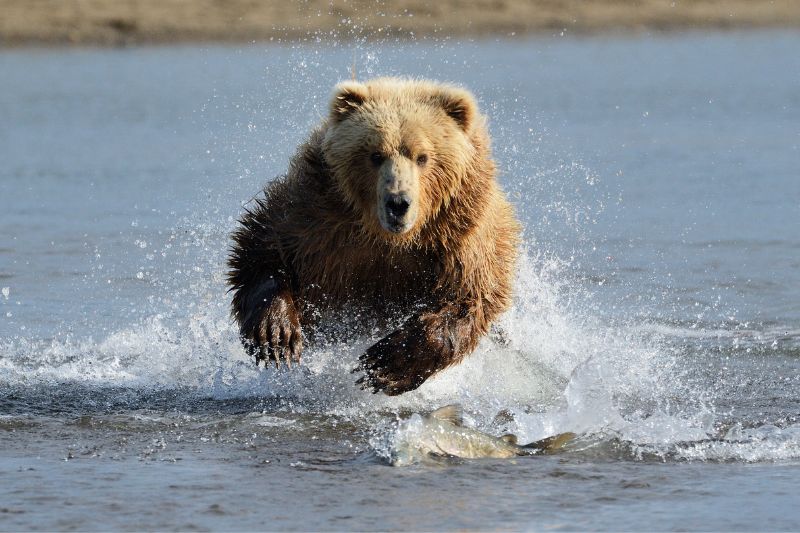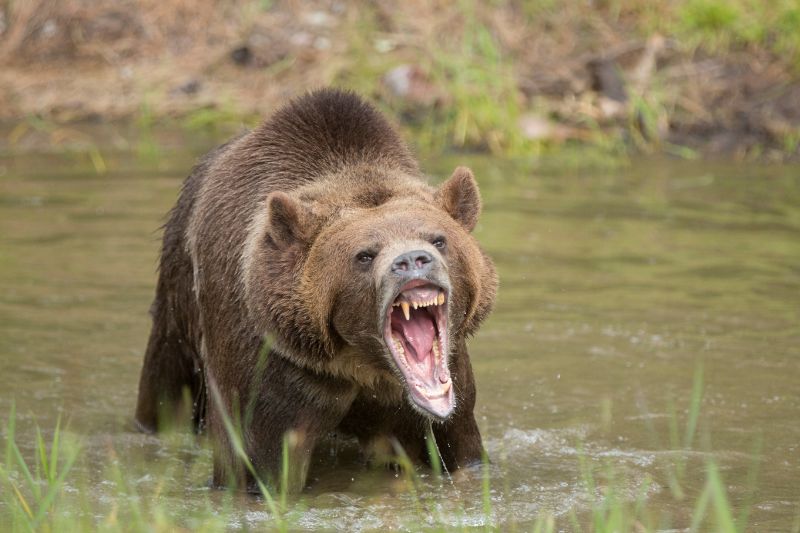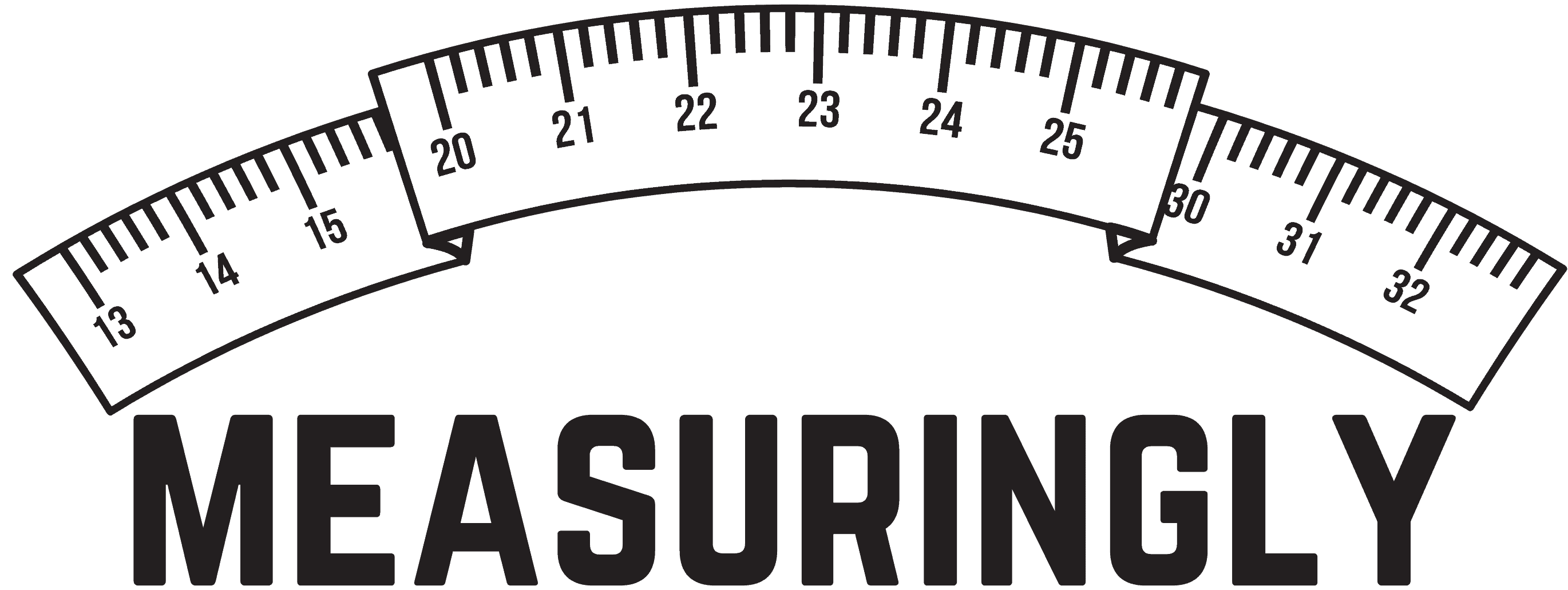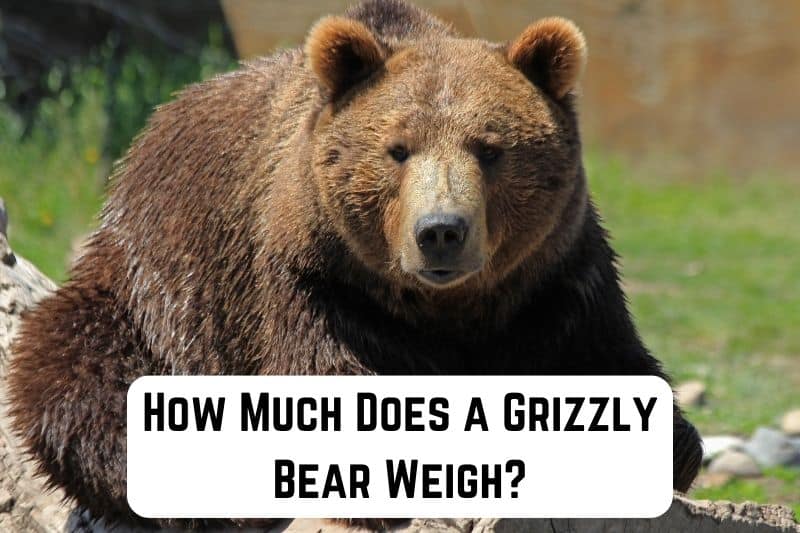As you explore the fascinating world of wildlife, one question might cross your mind: how much does a grizzly bear weigh? Grizzly bears, known for their size and strength, are undeniably intriguing creatures. Understanding their weight can give you a clearer picture not only of their physical attributes but also their lifestyle and diet.
To satisfy your curiosity, let’s dive into the realm of grizzly bears. We’ll discuss factors that affect their weight, such as age, gender, and location, as well as some remarkable facts about these magnificent animals.
By the end of this article, you’ll have a solid grasp of how much a grizzly bear weighs, which can enhance your appreciation for these wonders of nature.
Read: How Much Does Turkey Weigh? (Full Guide)
An adult male grizzly bear can weigh between 300 to 850 pounds (136 to 386 kg). Female grizzly bears are usually smaller, with a weight range between 200 to 450 pounds (91 to 204 kg). When grizzly bear cubs are born, they are quite small and weigh approximately 1 pound (0.5 kg).
Grizzly Bear Basics
Species Description
Grizzly bears, also known as North American brown bears, are majestic creatures that roam the forests and mountains. They are typically a mix of brown, black, and blonde colors, with a distinctive hump on their shoulders.
As you may already know, their size can vary depending on their diet and habitat. Adult males can weigh between 300 and 900 pounds, while females weigh between 200 and 450 pounds.
Behavior
These bears are most active during early morning and late afternoon, so you will likely spot one. It’s essential to remember that while they can appear calm, grizzly bears are incredibly powerful animals, and they can be dangerous if surprised or threatened.
They are solitary creatures, except during mating season or when a mother cares for her cubs. Tempting as it may be to approach one, always maintain a safe distance!
Their diet mainly consists of berries, nuts, fish, and occasionally larger mammals such as elk or deer. During the fall, grizzly bears enter hyperphagia, where they consume incredible amounts of food in preparation for hibernation.
During this time, they can gain as much as 3 pounds daily. When winter arrives, they choose dens to hibernate, lowering their heart rate and body temperature for several months until spring.

How Much Does a Grizzly Bear Weigh?
When thinking about grizzly bears, one of the first things that might come to mind is their size. Grizzly bears are indeed large animals, and their weight can vary significantly depending on age, gender, and food availability.
Male grizzly bears, or boars, are generally larger than females (sows). An adult male grizzly bear can weigh between 300 to 850 pounds (136 to 386 kg), while some exceptional individuals can reach up to 1,200 pounds (544 kg) or more. It’s important to remember that these numbers can vary, and each bear is unique.
- Coastal grizzly bears: Adult males living near the coast tend to weigh more, sometimes reaching up to 1,200 pounds (544 kg) due to their abundant food supply.
- Inland grizzly bears: Males found further inland generally weigh less, as they have less access to food resources. Their weight ranges from 400 to 790 pounds (180 to 360 kg).
Female grizzly bears are usually smaller, with a weight range between 200 to 450 pounds (91 to 204 kg). When they’re pregnant or raising cubs, female grizzlies may gain even more weight to ensure the survival of their offspring.
- Coastal grizzly bears: Females living near the coast have access to more food resources and can weigh up to 700 pounds (317 kg).
- Inland grizzly bears: Inland female grizzlies usually weigh between 200 to 370 pounds (90 to 170 kg).
Another factor that affects the weight of a grizzly bear is food availability. Grizzly bears are known to be opportunistic feeders, as they consume both plants and animals.
They have a diverse diet that includes berries, roots, insects, fish, and mammals. In regions with abundant food sources, you can expect the grizzlies to be on the higher end of the weight range.
Cub Weight
When grizzly bear cubs are born, they are quite small and weigh approximately 1 pound (0.5 kg). As they grow, their weight increases rapidly:
- At 4-6 months old: Cubs can weigh between 20 to 70 pounds (9 to 32 kg).
- At 1-year-old: They can reach weights ranging from 80 to 180 pounds (36 to 82 kg).
By the time grizzly cubs reach adulthood, their weight will have greatly increased, influenced by various factors such as their habitat, diet, and genetics.

Factors Influencing Weight
Diet
Your friendly neighborhood grizzly bear’s weight is greatly influenced by its diet. Grizzly bears are known for their varied eating habits, feasting on anything from berries and roots to fish and mammals.
When food is abundant, these bears can consume up to 90 pounds per day, putting on significant weight to prepare them for the winter months.
Habitat
Influencing their diet and subsequent weight, their habitat also plays its part. Grizzlies are found in environments like forests, alpine meadows, and coastal regions.
The availability of food sources within these habitats can vary, impacting the bear’s weight. For instance, coastal grizzlies with more access to calorie-rich salmon tend to weigh more than their inland counterparts.
Seasonal Changes
Seasonal changes play a crucial role in determining a grizzly bear’s weight. During hibernation in winter, bears lose substantial weight as they rely on stored fat reserves.
In the spring and summer months, they work to replenish their body weight while food resources are abundant. This weight gain is essential preparation for the forthcoming winter, ensuring their survival during hibernation.
Comparisons to Other Bears
Weight Comparison to Black Bears
Did you know that Grizzly bears tend to be much heavier than Black bears? Adult male Grizzlies usually weigh between 400 and 790 pounds, while female Grizzlies range from 290 to 400 pounds.
In contrast, adult male Black bears weigh about 130 to 660 pounds, and female Black bears weigh around 90 to 180 pounds. Here’s a quick comparison table:
| Bear Type | Adult Male Weight (lbs) | Adult Female Weight (lbs) |
|---|---|---|
| Grizzly Bear | 400 – 790 | 290 – 400 |
| Black Bear | 130 – 660 | 90 – 180 |
Weight Comparison to Polar Bears
When it comes to Polar bears, they are even heavier than Grizzly bears. Male Polar bears weigh between 900 and 1,600 pounds, and females range from 500 to 1,000 pounds.
Grizzlies, as mentioned earlier, usually weigh between 400 to 790 pounds for males and 290 to 400 pounds for females. Here’s a comparison table for your reference:
| Bear Type | Adult Male Weight (lbs) | Adult Female Weight (lbs) |
|---|---|---|
| Grizzly Bear | 400 – 790 | 290 – 400 |
| Polar Bear | 900 – 1600 | 500 – 1,000 |
As you can see, the weight differences between these bear species are quite significant. Considering their varying habitats and food sources, it’s fascinating how each species has adapted to their specific environment.
So, while Grizzly bears are relatively heavy among bears, Polar bears are the heavyweight champions of the bear world.
Read: How Much Does a Squirrel Weigh? (Complete Guide)
Conclusion
On average, male grizzly bears weigh about 600 pounds while females weigh about 350 pounds. However, this can vary significantly depending on factors such as age, habitat, and time of year. A healthy weight range for a grizzly bear can be anywhere from 290 to over 1,000 pounds.







